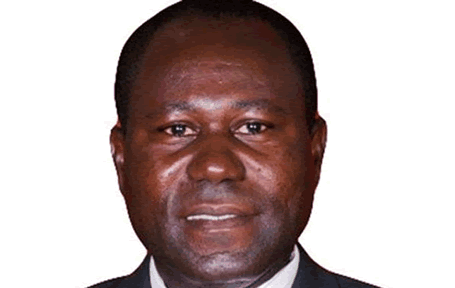
The writer
In a nation grappling with climate change, food insecurity, and a youth unemployment crisis, Ghana’s school gardens hold transformative potential.
These student-run plots are not just patches of dirt; they are living classrooms where children learn science by testing soil, math by measuring yields, and the value of sustainability by growing or rearing their own food.
With the 2025 Presidential Initiative on School Farms Initiative (SFI) aiming to turn over 700 schools into agricultural hubs, Ghana stands at a pivotal moment. But history offers a stark warning: good intentions alone won’t suffice. Without clear operational plans and a commitment to learning from past failures, this latest push risks becoming another romanticised dream left to wither.
School gardens have long been a symbol of promise in Ghana. In the 1970s, General I.K. Acheampong’s Operation Feed Yourself (OFY) programme rallied students to grow crops like sugarcane, envisioning schools as engines of economic self-reliance. The vision was bold, but execution faltered.
Inadequate supplies, poor storage, and economic turmoil led to wasted harvests and persistent food shortages. Successive governments have since championed school gardens as solutions to hunger and disengaged youth, yet each effort has stumbled over the same hurdles: insufficient resources, political favoritism, and a failure to shift perceptions of farming as punishment rather than opportunity.
The 1980s saw fleeting successes, like Peki High School’s award-winning gardens, but the 1990s brought a decline as structural adjustment policies sidelined community farming. A revival in the 2000s came through groups like 4-H Ghana, which by 2012 had cultivated over 70 acres, teaching leadership and agribusiness. Media outlets like the Daily Graphic pressed for mandatory school gardens, linking them to nutrition and jobs. By 2018, the National Service Scheme piloted farming projects, building on reports that gardens could bolster the Ghana School Feeding Programme (GSFP).
A beacon of hope emerged in 2010 with the founding of the Reach Out to Future Leaders Movement (ROFLM) by environmental scientist Alfred Godwin Adjabeng. In 2011, its School Farms introduced community-driven gardens in schools such as Savelugu Senior High and St. Agnes Senior High in the Upper West Region, cultivating maize and sorghum that reduced meal costs by 40%.
Building on this impact, the initiative expanded to institutions like Mawuli School and Heritage Academy, and in 2022, ROFLM rebranded as School Farms. Today, it champions climate-smart practices including greenhouse farming, mushroom cultivation, animal rearing, and aquaculture, while fostering entrepreneurship and nutrition through its Nourish Lab. Its story demonstrates the transformative power of vision put into action.
Under President Nana Akufo-Addo (2017-2024), the Planting for Food and Jobs (PFJ) programme encouraged schools to grow crops, with all public senior high schools included by 2018. But political patronage and patchy support limited impact, echoing OFY’s missteps.
The 2020 pandemic sparked renewed interest in self-sufficiency, followed by initiatives like the 2022 Blue Skies/KIC/Mastercard Foundation School Farm Competition. Now, in 2025, President John Dramani Mahama’s SFI aims to transform 15,000 acres across 700 schools, targeting crops like rice and maize to slash Free SHS feeding costs, which hit $2.8 billion in 2024. With plans for seeds, mechanisation, and 10,000 jobs for agriculture graduates, the initiative, aligns with the “Feed Ghana” campaign. Yet, without addressing past pitfalls, it risks becoming another fleeting ambition.
History reveals persistent obstacles: limited partnerships with private sector actors such as nonprofit organisations, including School Farms, which has operated in Ghana for more than 11 years, or other social enterprises as implementers; unsustained funding; inadequate irrigation and tools; political interference; and the stigma of farming as punishment.
Overlapping academic and farming schedules, ecological shocks, and insufficient training further undermine engagement. The model of the School Farms organisation offers a blueprint that is community-driven, climate-smart, and focused on empowerment.
To succeed, the government’s SFI must establish clear guidelines, ensure sustained funding, and lead cultural campaigns that reframe agriculture as a career of pride.
The stakes are high. School gardens align with Ghana’s competency-based curriculum, teaching science, career technology, and mathematics through hands-on projects. Ghana’s leaders must move beyond rhetoric. Modest investments in infrastructure, training, and partnerships can yield outsized results.
As Dr. Peter Boamah Otokunor has said, this is about empowering a generation to see agriculture as opportunity. The promise of school gardens or farms is real, but only if Ghana plants them with the wisdom of its past and the clarity of a focused future.
By Alfred Adjabeng
Read Full Story





















Facebook
Twitter
Pinterest
Instagram
Google+
YouTube
LinkedIn
RSS